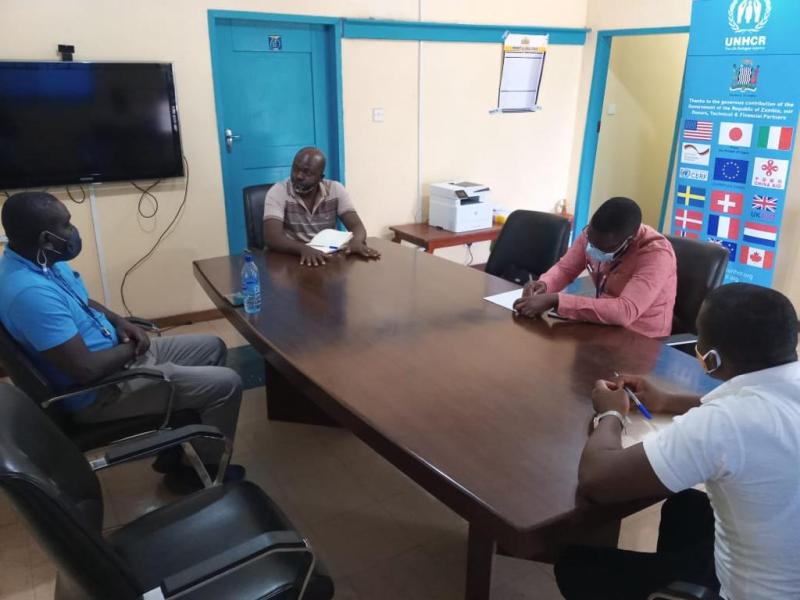Over 90 per cent of the global population breathes unhealthy air resulting from burning of fossil fuels, according to the World Health Organization, and more than 13 million people die every year due to avoidable environmental causes. For World Health Day, UN Volunteer Harry Madimba Massamba shares how he is helping tackle this problem through his assignment with the UN Clinic in Zambia.
As a national UN Volunteer Medical Officer based at the Inter-agency UN Clinic, I support efforts to promote a wellbeing economy and culture in the UN system in Zambia. Human wellbeing, equitable access to healthcare and ecological sustainability are key deliverables that I strive for in my day-to-day work. I believe that the key to a healthy lifestyle is in the mantra of giving: "there is more happiness in giving than in receiving".
Volunteerism changed my perspective of being human – to that of someone who strives for the continuous wellbeing of societies regardless of status. I have learnt to be more content and empathetic, and to do what benefits other people’s lives. Being a UN Volunteer enlarged my scope of practice through the crucial skills and knowledge provided by UNV. --Harry Madimba Massamba, UN Volunteer Medical Officer, UN Clinic in Zambia
To support UN staff in Zambia during the COVID-19 pandemic, I work closely with the UN Clinic Physician and the UN medical crisis and emergency response team, with the support of the UN Resident Coordinator’s Office.
We regularly update and disseminate COVID-19 prevention and mitigation guidelines, including designing COVID-19 awareness ICT materials, preparing return-to-office strategies, and developing Standard Operating Procedures for care and treatment of COVID-19 cases among UN staff and their dependents.
During the third wave COVID-19 pandemic in Zambia, I led several field support activities for the UN Clinic. Together with my colleagues, we worked closely with the country team of the UN Refugee Agency (UNHCR) and the Ministry of Health to implement return-to-office strategies and improve health services for all UN support staff in refugee camps throughout the country. The technical support provided was extended not only to the UN staff, but also to the most vulnerable refugee communities in Zambia. By improving healthcare services for all, we made sure that the refugees have access to adequate healthcare and treatment.
Throughout my assignment, I have developed skills and knowledge that have propelled my dream of extending healthcare access to marginalized people, such as refugees. Part of my work involves giving hope to people with difficult health conditions through hospital visits and conversations. --Harry Madimba Massamba
Non-communicable diseases, especially hypertension and heart disease conditions, have been increasing in Zambia. This has partially been attributable to increased stress levels related to the impacts of the COVID-19 pandemic.
Together with other colleagues and UN Volunteers, I have supported efforts to create healthier working environments for UN staff in the country. We considered the key stress factors facing UN staff in the country when designing the UN return-to-office strategy – with a focus on prevention and mitigation of COVID-19 and stabilizing those living with non-communicable diseases.
As a Medical Officer, and most importantly, as a UN Volunteer, I consider it my responsibility to encourage my patients to strive for healthy lifestyles through healthy eating and exercise. This helps reduce clinical visits and medical waste. This contributes to a clean environment – indicating the close linkage between human health and that of the planet. --Harry Madimba Massamba
The COVID-19 pandemic has revealed weaknesses in all areas of society and underlined the urgency of creating sustainable communities committed to achieving equitable health now and for future generations, without breaching ecological limits.
I am proud that every day of my UN Volunteer assignment at the UN Clinic in Zambia is a step towards achieving this goal – contributing to the safety and happiness of UN staff and personnel, their dependents and the communities they serve.


